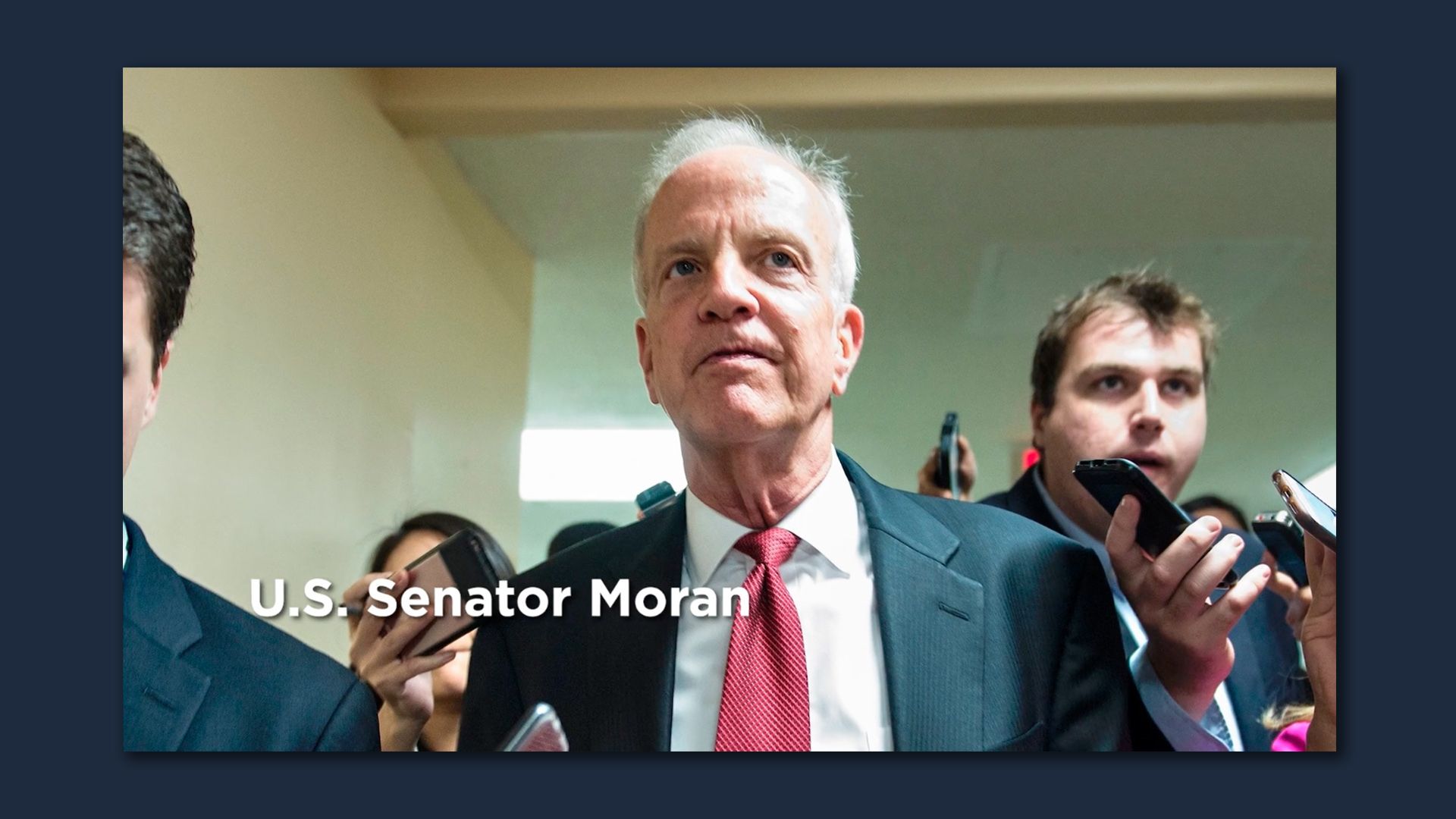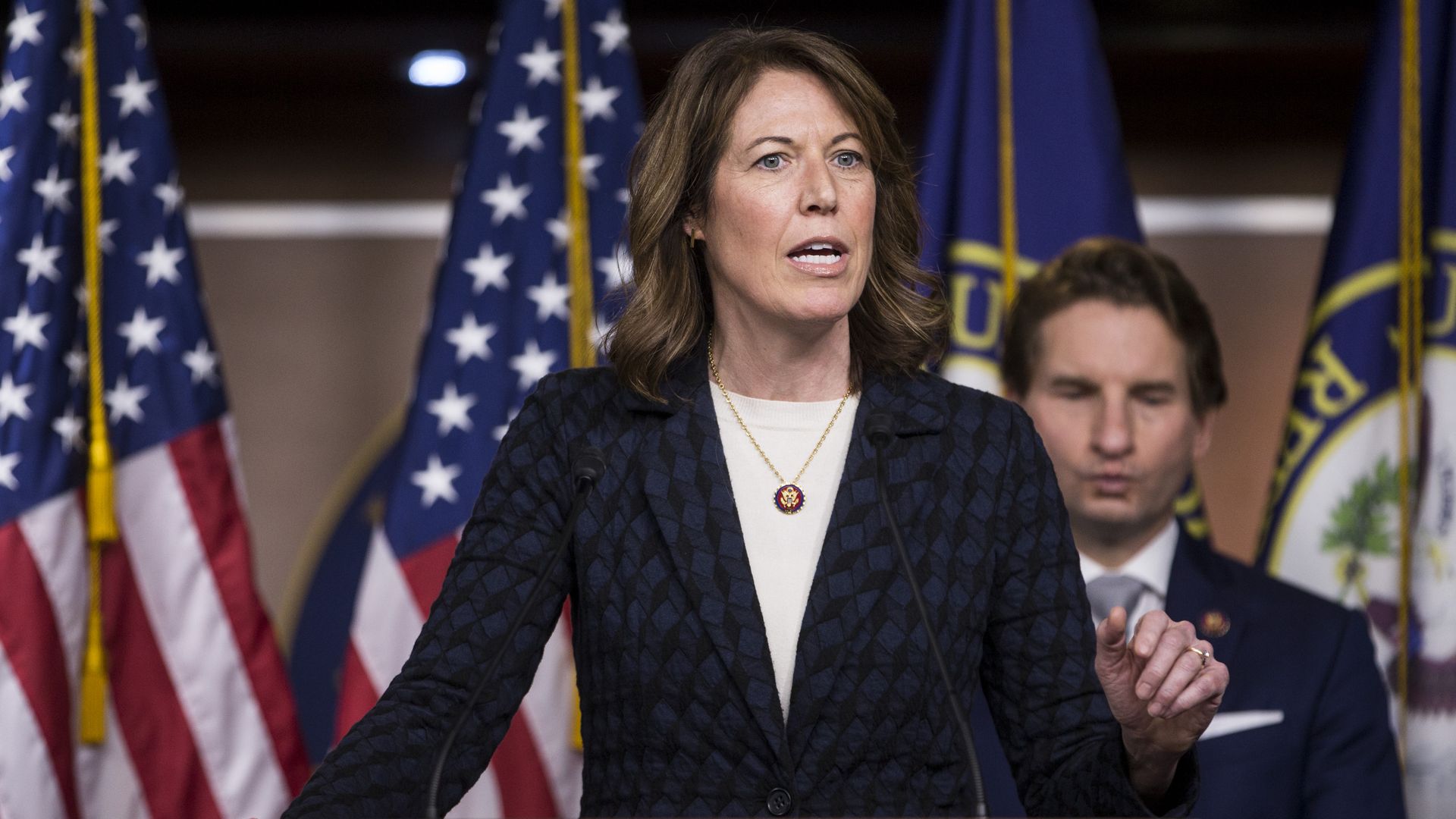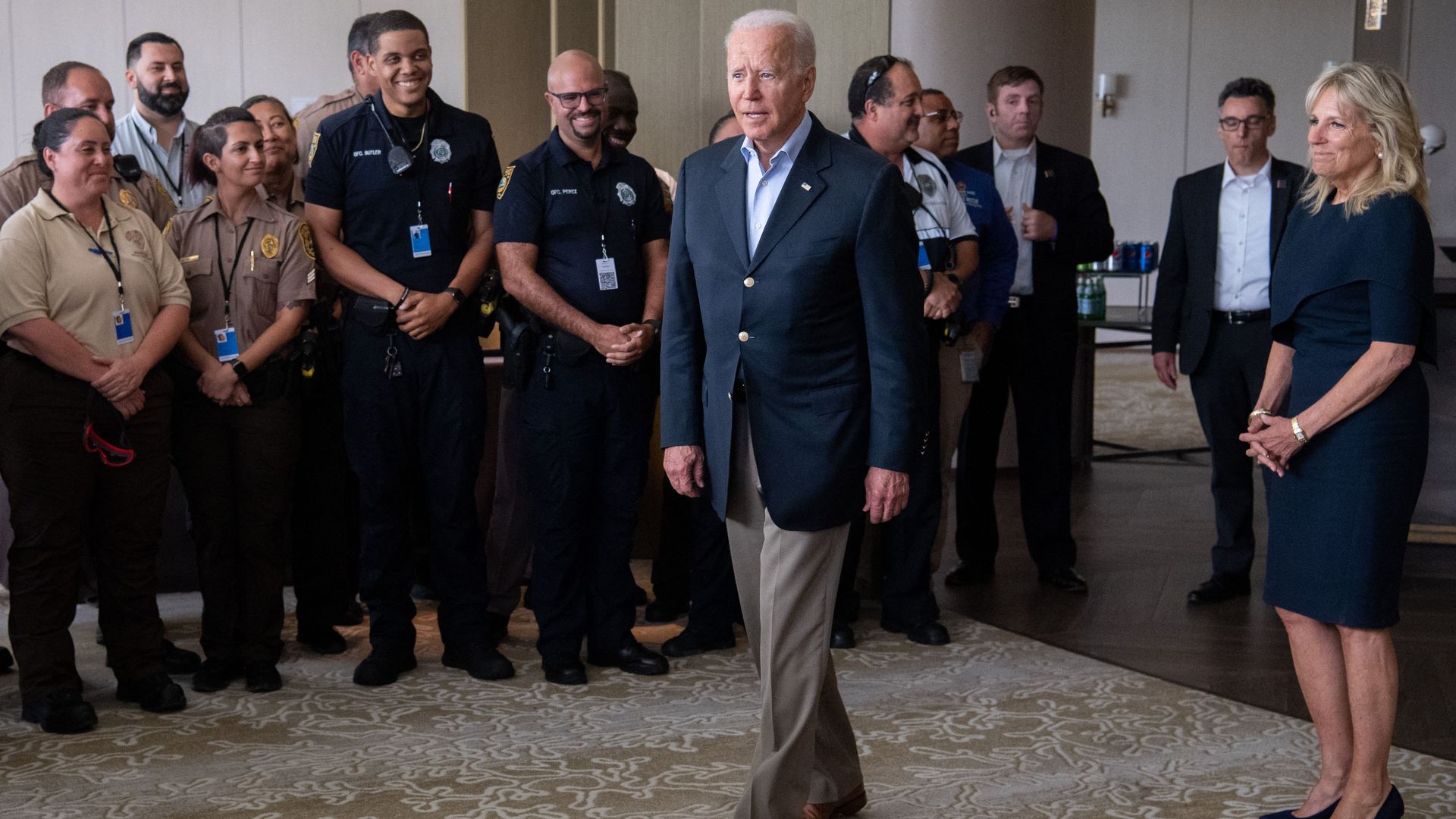| | | | | | | Presented By UnitedHealth Group | | | | Axios Sneak Peek | | By Alayna Treene and Hans Nichols ·Jul 01, 2021 | | Welcome back to Sneak. The consoler-in-chief spent the day in South Florida. Smart Brevity™ count: 1,492 words ... 5.5 minutes. Edited by Glen Johnson. | | | | | | 1 big thing: Liberals sour on Bernie |  | | | Photo illustration: Sarah Grillo/Axios. Photo: Drew Angerer/Getty Images | | | | Some progressives are distancing themselves from Sen. Bernie Sanders (I-Vt.) — leader of their revolution, Axios' Alexi McCammond writes in her return dispatch. The big picture: Three factors are fueling the shift. Some feel he's not pushing President Biden far enough to the left anymore. Some believe his time as the movement leader has simply passed. Some fear tying their brand to Sanders is a gift to opponents to weaponize in crowded primaries or in general elections — and they're instead weighing the merits of aligning more directly with Biden. Driving the news: Even some of Sanders' closest allies — like Nina Turner, his 2020 campaign co-chair, who's running in a hotly contested Aug. 3 Democratic primary for a special election for Ohio's 11th congressional district — haven't been running with his endorsement front and center. What they're saying: "When I'm knocking door-to-door, people aren't asking me about endorsements," Turner tells Axios. "The race that I'm running is about Ohio 11, and I'm the one running this race." - Turner is running on Sanders' liberal agenda but not his name.
- "The senator and I are still close," she said. "We forged a strong relationship and we still have that to this day."
- Jeff Weaver, a longtime Sanders aide and consultant to Turner, said in a statement: "The progressive movement is in a period of maturation. Progressives have shown they can inspire voters and win in state after state — as Bernie did in 2016 and 2020. Now, they are showing they can govern in an effective and principled way in coalition with more conservative elements of the party."
The big picture: Several progressives in Congress and on the outside lament Sanders' unwillingness to "raise hell" now that Biden is in office and begging for party unity. - They want Sanders to be the liberal lightning rod he was before dropping out of the race and joining Biden task forces.
The intrigue: Turner's political dilemma is more complicated. Aides and backers tell Axios that part of the calculation around Sanders is actually the fact that Ohio 11's voters overwhelmingly embraced Biden last year. - In a crowded primary, they don't want to give Turner's opponents any easy ways to argue that her ties to Sanders would pit her against Biden or make her unwilling to work with more moderate Democrats.
House Majority Whip Rep. Jim Clyburn (D-S.C.) recently got involved in Turner's race to endorse one of her opponents, Shontel Brown. Instead of making the endorsement about Brown, Clyburn seemed to take his frustrations with some progressive colleagues out on Turner. - He told the New York Times his aversion to "sloganeering" and phrases like "defund the police" and "abolish ICE" helped him make this decision — but Turner doesn't call for either of those things.
- Rather than describe herself as a Sanders protege, Turner mentions President Franklin Delano Roosevelt and Black women who played historic roles in U.S. politics and the voting rights movement.
- "I'm a Congresswoman Shirley Chisholm Democrat. In the vein of FDR. That's the kind of Democrat I am. I'm a Fannie Hamer Democrat."
Keep reading. |     | | | | | | 2. First look: Conservatives attack own over IRS |  | | | A screenshot of an ad being run against Sen. Jerry Moran (R-Kan.). Via Coalition to Protect American Workers | | | | A conservative group focused on pressuring House Democrats to oppose Biden's plan to increase funding for the IRS is now targeting fellow Republicans, Axios' Hans Nichols has learned. Why it matters: By running a six-figure ad targeting Sen. Jerry Moran (R-Kan.), the Coalition to Protect American Workers is opening up a new front in the fight over how to pay for Biden's spending proposals, including the $579 billion bipartisan infrastructure package. - "If Joe Biden gets his way, they are coming: IRS agents," the ad begins. It closes with, "We need Senator Moran to step up and stop Biden's radical plan."
- Moran was the last Republican to join the so-called G20, a group of 20 senators working to reach an infrastructure compromise with the White House. His addition rebranded the group the G21.
- The 30-second spot is a version of an ad the group unveiled In May, targeting House Democrats in swing districts.
The initial buy is in the six-figures and will run across Kansas for two weeks, starting Tuesday, according to Katie Miller, communications director at CPAW. - The group was co-founded by Marc Short, chief of staff to former Vice President Mike Pence.
The big picture: In Biden's initial infrastructure plan, he proposed giving the IRS an extra $80 billion to help it collect an additional $700 billion over 10 years. - While Republicans roundly questioned that math, some senators suggested a willingness to give the IRS additional money, which saw its funding decline during the Trump years.
- The bipartisan group agreed on an extra $40 billion for tax enforcement, which Republicans believe will raise an additional $60 billion.
The intrigue: Conservative GOP senators are deeply skeptical of the plan to "super-size" the IRS's funding, Axios reported Wednesday. - Among those expressing doubt is Sen. Lindsey Graham (R-S.C.), who was part of the G20. He said, "A lot of this can be pie in the sky."
The bottom line: The conservative group, which has ambitions to raise $25 million, is planning ads against other Republicans, creating another potential roadblock to a bipartisan deal. |     | | | | | | 3. By the numbers: Ranked-choice voting |  Data: FairVote; Map: Axios Visuals Some voting experts are concerned the disastrous mayoral election in New York City will cause Americans to blame ranked-choice voting — rather than problems with the city's election board, Axios' Stef Kight writes. Between the lines: There's slowly growing support for ranked-choice voting, which allows voters to choose not only their top candidate but their second choice and third choices, and so on. Localities across the U.S. have had successful ranked-choice elections, and others are eyeing it for upcoming races. - 22 jurisdictions used ranked-choice voting in their most recent elections, as of June, according to the advocacy group Fair Vote.
- 53 plan to use it in at least one of their next two elections.
What they're saying: When it comes to the mistakes made in New York causing officials to wrongly count 135,000 test ballots, "I am worried that it will hurt ranked-choice voting nationwide — although it hope it doesn't and it shouldn't," Edward Foley, an election expert at Ohio State University, told Axios. - "Already the beef against ranked-choice voting is that it's too complicated... but this will just add to the concerns," said Rick Hasen, a recognized election expert at the University of California, Irvine.
- "I think it reflects the general incompetence of New York City's board of elections, rather than having anything to do with ranked-choice voting."
|     | | | | | | A message from UnitedHealth Group | | Helping to create a modern, high-performing health system | | |  | | | | UnitedHealth Group is committed to expanding access to high-quality, affordable care that achieves better outcomes and enhances the health care experience. We are partnering to advance health equity and support the communities where we work and live. Learn more in our Sustainability Report. | | | | | | 4. Biden's new worry in Trump country |  | | | Rep. Cindy Axne (D-Iowa). Photo: Zach Gibson/Getty Images | | | | Democrats in Trump-won districts are hesitant about their party using the reconciliation process to ram through a second, partisan infrastructure package, even as the more progressive wing of their party demands it, Axios' Sarah Mucha and Alayna Treene report. Driving the news: Axios surveyed all seven House Democrats representing districts former President Trump won in 2020 to hear their concerns with the current infrastructure debate. Nearly all are undecided about how they'll vote on either the $1.2 trillion bipartisan bill or a partisan follow-up. - While they've yet to commit either way on either plan, it was clear most are uneasy with a budget resolution costing as much as the one Sen. Bernie Sanders (I-Vt.) desires — $6 trillion.
What they're saying: Rep. Cindy Axne (Iowa-3) said Democrats are "getting a little top-heavy with the $6 trillion." - "I just want to see a package that includes the things that I think are truly infrastructure today: more on broadband, definitely child care, and that's what I'm really trying to work for us to get those pieces in there."
Rep. Andy Kim (N.J.-3) said his biggest priority is passing a bill that helps tackle climate change. - "The problem that I have with the reconciliation efforts or other things is that I see bold ideas and big numbers, but what I haven't heard from the White House is how much of the problem is it going to solve?"
Reps. Jared Golden (Maine-2) and Rep. Ron Kind (Wis.-3) had no comment on reconciliation. - "My position is that a lot of us worked very hard, put in a lot of work into getting a good bipartisan infrastructure bill," Golden told Axios.
- Kind said in a written statement that he is "thrilled" to see infrastructure investment happen on a bipartisan basis.
Reps. Elissa Slotkin (Mich.-8) and Matt Cartwright (Pa.-8) emerged as the most open to passing a reconciliation bill. - "Just show me what we're talking about and show me how it'll help my district," she told Axios.
- Cartwright said he's supportive of the effort, despite having yet to see the text.
Rep. Cheri Bustos (Ill.-17), who has announced she will not run for re-election, said she has faith Democratic leaders and Biden will find the right solution. Keep reading. |     | | | | | | 5. Pics du jour |  | | | Photos by Saul Loeb/AFP via Getty Images | | | | President Biden and first lady Jill Biden speak with first responders before meeting with families of those killed or lost in the Sunrise, Florida, building collapse. - Later, addressing reporters, the president recalled receiving word of the death of his first wife and daughter in a 1972 car crash that also injured his two sons.
- "It's bad enough to lose somebody. But the hard part — the really hard part — is to not know whether they're surviving or not, to just not have any idea," he said.
Before flying back to Washington, the first couple placed a bouquet of irises and read reflections at a makeshift memorial to the victims. |     | | | | | | A message from UnitedHealth Group | | UnitedHealth Group's commitment to sustainability | | |  | | | At UnitedHealth Group, sustainability is an extension of our business strategy, culture and mission to: - Help create a modern, high-performing health system.
- Foster an inclusive and diverse culture.
- Maintain strong corporate governance.
- Minimize our environmental impact.
Learn more. | | | | 🇺🇸 🧨 Thanks for reading. We'll be off next week for the Fourth of July holiday but back Sunday, July 11. A reminder your family, friends and colleagues can subscribe to this or any of Axios' other free newsletters by clicking here. |  | | It'll help you deliver employee communications more effectively. | | | | | | Axios thanks our partners for supporting our newsletters. If you're interested in advertising, learn more here.
Sponsorship has no influence on editorial content. Axios, 3100 Clarendon Blvd, Suite 1300, Arlington VA 22201 | | | You received this email because you signed up for newsletters from Axios.
Change your preferences or unsubscribe here. | | | Was this email forwarded to you?
Sign up now to get Axios in your inbox. | | | | Follow Axios on social media:    | | | | | |
Post a Comment
0Comments